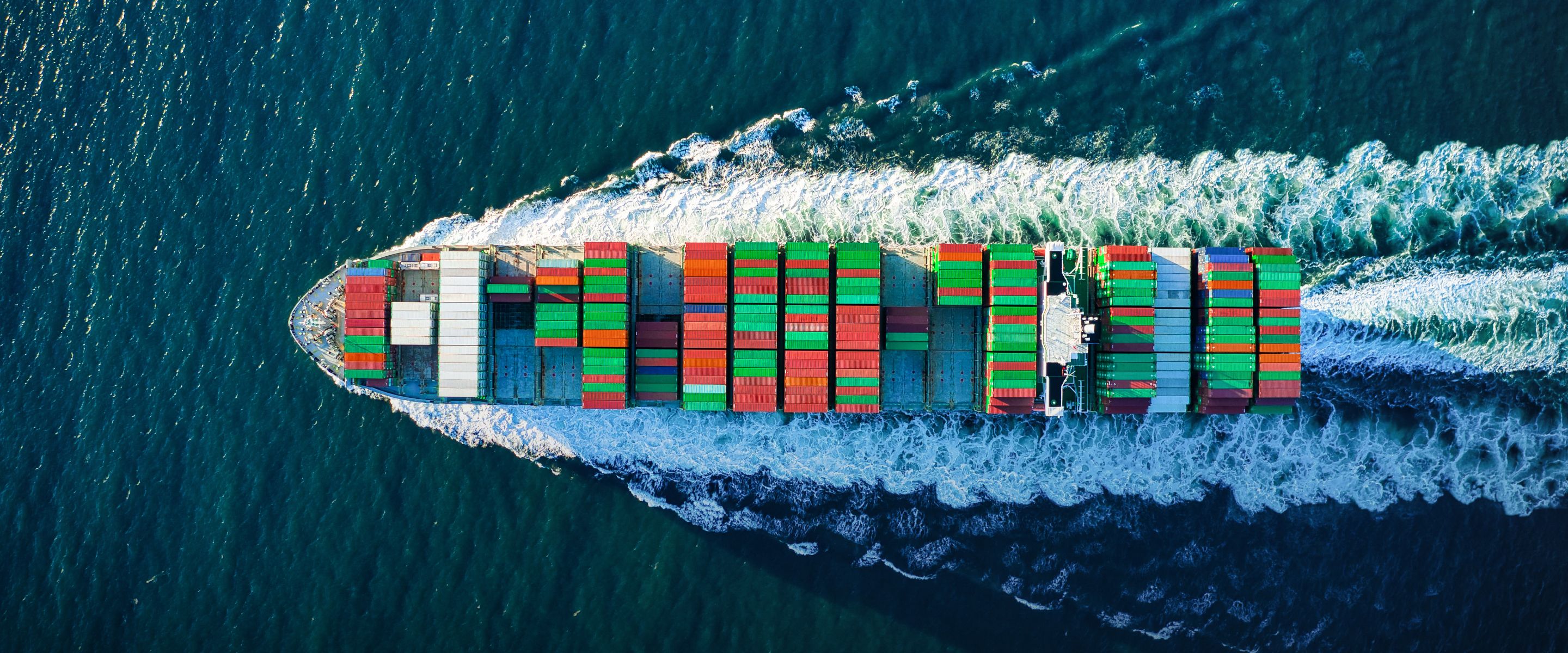
Acting responsibly
Within the STIHL Group, doing business responsibly does not end at our factory gates. We strive to foster and maintain a partnership with our more than 10,000 suppliers that is based on common values and goals. Through it all, we work toward a responsible collaborative relationship in which we expect both high standards and appropriate support to help us achieve them together.
Organization and responsibilities
In the reporting year, there were no material changes to the way procurement is organized at the STIHL Group. The STIHL founding company plays the leading role within the purchasing network and defines the strategy for the entire Group, allowing us to manage our needs centrally and guarantee the efficient supply of raw materials and consumables.
Our purchasing strategy is regulated by internal guidelines and standards to ensure standardized processes and procurement principles. The director of purchasing, who reports to the STIHL AG Executive Board member for Manufacturing and Materials, works with the responsible senior managers and the purchasing managers of the production companies to develop the strategy. Procurement teams from Purchasing, Quality Management, and Procurement Logistics are responsible for the Group-wide implementation of the strategy and for making sure that our STIHL procurement principles are followed everywhere.
Commodity managers are responsible for procurement and all other activities related to individual product groups. Our leading buyers maintain contact with suppliers. They work with the commodity managers to select suppliers for individual products from the product groups and negotiate prices. Commodity buyers round out the structure. They incorporate regional markets’ specific requirements and criteria into the product group procurement strategies.
As a global organization, the STIHL Group buys goods and services around the world. Within our production network, we strive to procure raw materials and upstream components on the continent where they are actually processed whenever possible to keep transport distances and CO2 emissions to a minimum.
Local purchasing volume¹
of production materials
(production companies only)
Sustainable purchasing decisions
Steel, magnesium, plastic, and electronic modules account for a significant portion of our purchased materials and components. STIHL uses them to make many important components of our products ourselves. Our above-average vertical integration helps us ensure our expertise in key areas of technology and meet our high quality standards in these steps of the production process. The lion’s share of our indirect purchasing needs is attributable to the operation, maintenance, and repair of our equipment, along with IT services and technical services.
Purchasing volume of essential production material by type of material¹
We want to ensure that our products are manufactured with the greatest possible conservation of resources in mind. In 2022, we initiated a strategy process for the use of raw materials that are critical from an environmental perspective. In the reporting year, we developed a structure and a process for the analysis of critical raw materials, with an initial focus on our battery cells and the raw material magnesium. Beyond that, we concentrated on meeting requirements in the context of supply chain management, raw material procurement, and substance bans. Our goal is to either replace environmentally critical raw materials or procure irreplaceable ones as sustainably as possible.
Fiscal year 2023
2023 once again presented STIHL with major challenges. Following multiple years of strong growth, demand and order intake saw a sustained drop in 2023. In October, the business climate in the German metal and electronics industry fell to its lowest level in more than two years. The war in the Middle East, which spells further challenges for the economy, is an additional factor. As in the previous years, components made of steel (such as punched and turned parts) and entire assemblies made out of steel were most affected by the shortages, as were electronics components and plastics. The problems procuring cable harnesses, switching equipment, and rubber parts have also persisted since the Russian invasion of Ukraine.
We are trying to mitigate the impact of the energy crisis through long-term contracts, and covered most of our electricity and gas needs for 2022 and 2023 by relying on existing supply agreements.
The shortages of raw materials, components, and energy have driven up prices and resulted in a sharp rise in our procurement costs. As a result, we too have had to adjust our prices.
Supplier management
Because our choice of suppliers has an impact on how sustainable our supply chain is and is capable of being, the Group has expanded the purchasing criteria (price, quality, and logistics) to include sustainability-oriented aspects. To this end, Quality Management launched the Sustainable Supply Chains project in 2020 and completed it in late 2022. Sustainability has been an integral part of the STIHL Group’s approach to supplier management since the start of the reporting year.
The project milestones include a risk exposure analysis of all suppliers as a basis for necessary preventive measures. They have been classified into four risk categories: low, medium, high, and extreme. In addition, we introduced a cloud-based platform that we can use to check and monitor our suppliers’ conformity with the relevant sustainability and compliance standards. The platform is designed to increase our suppliers’ transparency. It is currently in use at the founding company and all production companies. All of our regular suppliers receive an invitation to the platform, as do nonregular suppliers from which we purchase a certain, predefined volume. Increased risk exposure is another criterion, according to our analysis. The platform now allows us to systematically document the information provided by suppliers and use it to assess risks, prepare audits, and make contracting decisions.
Following the Sustainable Supply Chains project, the STIHL Group used the reporting year to focus on expanding a global sustainable supply chain network (SSC). The goal of the network is to create a community of people and organizations that are interested in SSCs and are responsible for promoting them within purchasing departments and at production companies. To this end, we established a structure, convened regular meetings, and organized training on topics such as child labor, forced labor, and the sustainability processes at STIHL.
Sustainability already plays an important role when (pre)selecting and onboarding suppliers. Our code of conduct for business partners is an obligatory element of any supply contract (see “Code of conduct for suppliers,”). An international reporting system that takes into account input such as the information on our internal platform is in place for existing suppliers. We audit them systematically and support them if necessary during their development to help them act on our sustainability standards. If a supplier does not meet sustainability standards, we initially attempt to improve the situation, with a focus on dialogue and deriving measures for the supplier. The purpose of doing so is to empower suppliers before we withdraw from the partnership. STIHL reserves the right to terminate the working relationship as a last resort, should these efforts prove fruitless. The German Federal Office for Economic Affairs and Export Control (BAFA) is notified of violations by our suppliers within the scope of the LkSG report.
Our supply chain management approach helps us contribute to the goal “Decent work and economic growth” (United Nations Sustainable Development Goals, SDG 8) by promoting minimum social standards and enforcing respect for human rights requirements, including the ban on child labor, as well as fair and safe working conditions.
SustaiNet
Working together is the key to achieving more, especially when it comes to complex issues like sustainability. That is why STIHL decided in 2021 to join SustaiNet, a platform for sharing and exchange that is moderated by a consultancy firm and focuses on sustainability in the supply chain. External support for the network, which is made up of seven member companies from a variety of sectors, ended in summer 2023. The network continues sharing knowledge and experience as in the past and remains committed to complying with laws and statutes. In 2023, the participants took a closer look at the German Act on Corporate Due Diligence in Supply Chains and its consequences, CO2 in the supply chain, incorporating sustainability into decision-making processes, and supplier audits.
Code of conduct for suppliers
We expect our suppliers to actively support us in developing a sustainable supply chain. Our code of conduct for suppliers, in which we describe our vision of sustainable and responsible business practices, has been in place since 2015. In 2021, we revised the code with regard to social, environmental, and governance aspects. It now contains even more clearly defined criteria that we use to assess our partners.
The code of conduct is based on the principles of the United Nations Global Compact and the International Labour Organization (ILO) Declaration on Fundamental Principles and Rights at Work, and has been adopted by the Executive Board. In addition to compliance with human rights standards while providing fair and safe working conditions, STIHL Group members oblige their suppliers to pledge a commitment to protecting the environment. They are required to do business in a way that conserves resources, to record and reduce their greenhouse gas emissions, and to procure (raw) materials sustainably. The code also contains provisions stating that suppliers should prevent discrimination and corruption and ensure data protection. Most of our largest suppliers* have already signed the code of conduct. Our code of conduct is updated regularly so as to consistently meet our standards and the relevant legal requirements.
Over the course of the reporting year, we initially trained all members of the SSC network on the content of the code of conduct and its application. Training for all procurement staff and for our suppliers is currently in development.
Over the course of the reporting year, we initially trained all members of the SSC network on the content of the code of conduct and its application. Training for all procurement staff and for our suppliers is currently in development.
The STIHL Group uses a variety of mechanisms to monitor our suppliers’ commitment to sustainability, such as our internal platform, the code of conduct for suppliers, and sustainability audits. Such audits are part of the new supplier approval process, as well as the requalification audit that we use to decide whether to continue business relationships with current suppliers. STIHL also honors suppliers accordingly. In 2023, we named two companies “Sustainability Suppliers of the Year” for the first time. Both of those partners care about environmental and social matters as much as we do.
* Production companies only, not including ZAMA Group.

